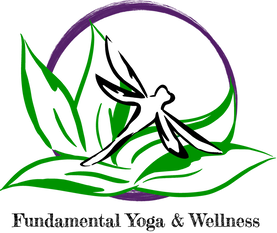|
Anyone who’s been in my yoga classes for long has heard me give the lemon meringue pie metaphor.
That pie sits there and we jump in. We feast on the bright, glowing yellow and enjoy the light springiness of the white meringue. We enjoy the contrast of the puckery lemon and deep sweetness. And then…we hit a shell. And we recoil as we continue to try to get rid of the sandy grit. Ugh. It seems to go on and on before our mouth is clear. Blech! The question is, then what? Is your whole focus going to be trepidation that you might hit another shell? Or will you turn back and allow yourself to rejoice in all that is good about that pie? Will it ruin lemon meringue pie for you forever more? I know it’s silly, but getting vivid with an image like that really helps me be clear—we don’t control everything that comes our way, but we can work on how we respond and on where we put our focus. Maybe if you made that pie, you’ll take note of something you want to do differently. Maybe you’ll just accept that sometimes that wonderful pie also has some grit. To me, where I direct my focus is direct gratitude practice. Gratitude practices have pretty clearly been demonstrated to lift us. According to “ Giving Thanks Can Make You Happier,” an article in Harvard Health Publishing, August 14, 2021 (Link at www.health.harvard.edu/healthbeat/giving-thanks-can-make-you-happier#:~:text=In%20positive%20psychology%20research%2C%20gratitude,express%20gratitude%20in%20multiple%20ways.), ”…gratitude is strongly and consistently associated with greater happiness. Gratitude helps people feel more positive emotions, relish good experiences, improve their health, deal with adversity, and build strong relationships.” Certainly, it doesn’t erase the challenges we face. But with gratitude, we also acknowledge the goodness in life. This also resonated for me: “In the process, people usually recognize that the source of that goodness lies at least partially outside themselves. As a result, being grateful also helps people connect to something larger than themselves as individuals — whether to other people, nature, or a higher power.” The article names numerous studies which conclude that people who cultivate an awareness of the good in their lives, and especially those who express it (like in a thank you note or a compliment) not only feel better, but they affect the people around them positively! It makes sense. Employers who share positive feedback inspire greater loyalty and effort. Spouses who thank their spouses are both happier. In one example, two psychologists, Dr. Robert A. Emmons of the University of California, Davis, and Dr. Michael E. McCullough of the University of Miami found that those who wrote a few lines each week on what they were grateful for were more optimistic and felt better about their lives than a control group who wrote about irritations. The gratitude group also exercised more and had fewer visits to physicians than those who focused on sources of aggravation. Some optimists are born, but we can cultivate the gratitude awareness skill and change our lens on life. In this article, the author suggests we can call on the past, present or future to find gratitude! Relive and give thanks for positive memories. Slow down enough to appreciate the bounty around us in the present. And choose to be open to the possibility of beauty that may come in the future. Our yoga teaches us the resilience and discipline to stay open. It can be hard. Our biology wires us to stay vigilant to avoid pain. But do we want to hole ourselves away in protective, negative-expecting mode? To our brain, each thought is a reality. We have the choice to create and recreate our reality. Recently while on crutches, unable to set one foot down, I got really fatigued and at one point fell repeatedly over a few days. I began replaying the falls and the trauma, fearing what might happen the “next fall.” I realized finally that I may as well be falling over and over and over as far as my brain went. The more I dwelt on it, the frailer I felt. Yikes! I began by stopping myself every time my monkey mind went to falling. Then I slowed way down and thought of all the tools and resources I had to stay upright. I gave thanks for my strong body, which hadn’t been injured and which was carrying me around despite a challenge. And a strange thing happened. I wasn’t afraid, I didn’t fall again and I found better ways to navigate safely. Oh, and PS, I actually got a lot of little gifts of awareness during the challenge of infirmity. So for me, I choose to love the pie!
0 Comments
Your comment will be posted after it is approved.
Leave a Reply. |
Taisha WeberI've taught and lived yoga for more than 20 years. I know it can be intimidating. But it can also be fun--and rewarding--regardless of your starting point or challenges. On this blog I share some of the yoga wisdom that sustains me.
Archives
November 2023
Categories |
Photo from {Futuretester | Jason Tester}



 RSS Feed
RSS Feed


